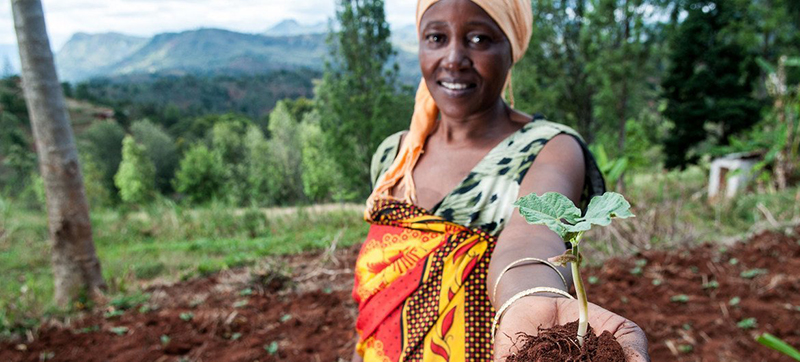 Environment
Environment
UN focus on plant health, crucial for boosting food security worldwide
New York: On the very first International Day of Plant Health, marked on Thursday, the UN Food and Agriculture Organization (FAO) has called for more investment in innovation to boost food security, especially for the billions worldwide living close to the bread line.
Plants under threat
Healthy plants have the power to help end hunger, reduce poverty, protect the environment, and boost economic development. But even though plants make up 80 per cent of the food we eat, and provide 98 per cent of the oxygen we breathe, threats to their survival in many cases, are piling up.
According to recent data, up to 40 per cent of food crops are lost due to plant pests and diseases every year, and this affects both food security and agriculture, the main source of income for vulnerable rural communities.
Climate change and human activities are also altering ecosystems and damaging biodiversity while creating new niches for pests to thrive in.
Furthermore, FAO says that protecting plants from pests and diseases is far more cost effective than dealing with plant health emergencies. That is because once established, plant pests and diseases are often difficult to eradicate, and need to be controlled through sustainable pest and pesticides management.
Human health depends on plants
“On this very first International Day of Plant Health, we reflect on plant health innovations for food security,” said FAO Director-General QU Dongyu, adding that investments are needed in research to find more resilient and sustainable additions to the human diet.
“We need to continue raising the global profile of plant health to transform agrifood systems to be more efficient, more inclusive, more resilient and more sustainable”, he continued.
The protection of plants is essential for people and for the planet, and that is why the UN Food and Agriculture Organization has mapped several priorities for plant health, coinciding with the inaugural Day.
Focusing on sustainable pest management and pesticides through promotion of green and digital plant protection; and creating enabling surroundings for plant health by enhancing the health of soils, seeds, and pollinators, are among the main priorities.
FAO is calling on governments to prioritize plant health and its sustainable management in formulating policies and legislation, and on academia and research institutions to deliver science-based solutions.
Why an International Day?
Having been established as a key legacy of the International Year of Plant Health 2020, the International Day of Plant Health (IDPH) was designated to raise global awareness on how protecting plant health can help end hunger, reduce poverty, protect biodiversity and the environment, and boost economic development.
Championed by Zambia, it was unanimously adopted in a General-Assembly resolution co-signed by Bolivia, Finland, Pakistan, the Philippines, and Tanzania.
Following the first IDPH this year, FAO will organize celebrations for the Day every 12 May at global, regional, national levels, and even potentially, down on a farm, near you.
Support Our Journalism
We cannot do without you.. your contribution supports unbiased journalism
IBNS is not driven by any ism- not wokeism, not racism, not skewed secularism, not hyper right-wing or left liberal ideals, nor by any hardline religious beliefs or hyper nationalism. We want to serve you good old objective news, as they are. We do not judge or preach. We let people decide for themselves. We only try to present factual and well-sourced news.






